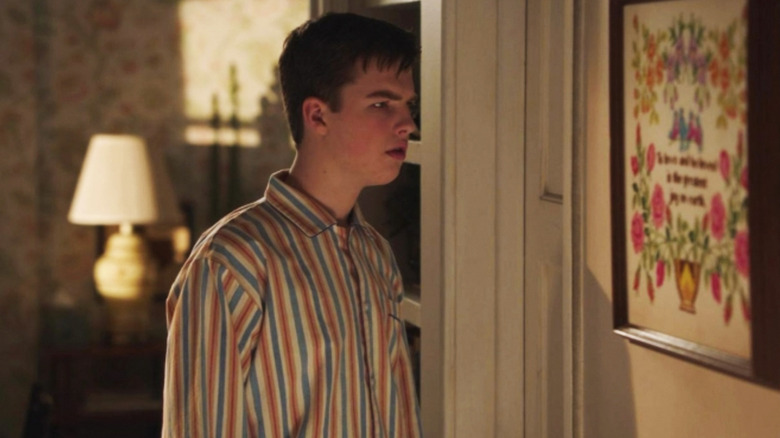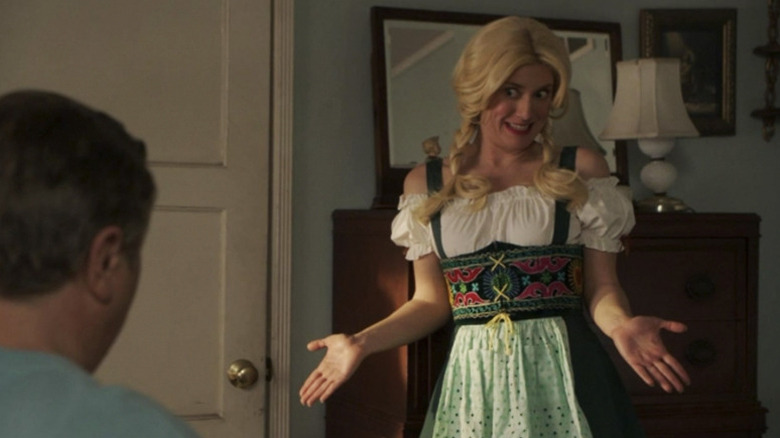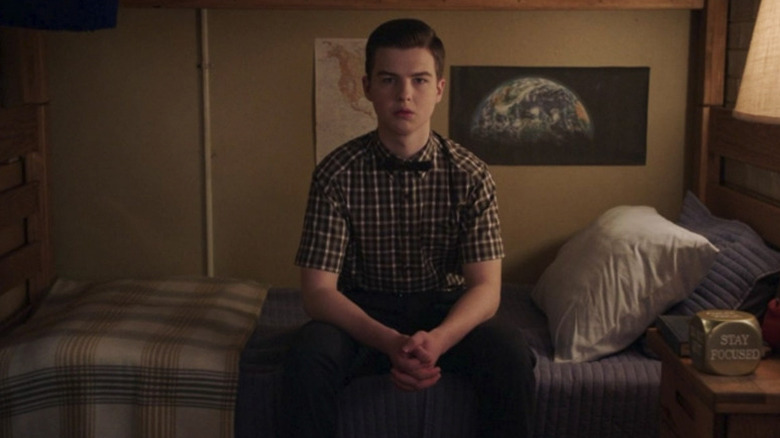
Sitcoms love to pull off a retcon. When it comes to maintaining TV continuity, the only guardrails in place are the limits of audiences’ disbelief, and plenty of hit shows have taken advantage of our bad memories and willingness to forgive plot holes in order to tweak and even totally reimagine their worlds. Retconning, the act of creating “retroactive continuity” changes, has been used in countless TV comedies over the years, from “Roseanne” to “Friends” to “That ’70s Show.” With its seventh season, “Young Sheldon” entered the retcon game in a big way, reframing a cynical rule from “The Big Bang Theory” as a funny and tragic misunderstanding.
In the earlier Sheldon Cooper-centric show, Jim Parsons’ character reveals that he always knocks three times on doors, not out of any obsessive-compulsive tendency, but because he was scarred as a kid when he walked in on his dad having sex with a woman who wasn’t his mother. “I never talked to my parents about what I saw that day,” Sheldon explained, “But from then on, I added extra knocks so people could get their pants on.” Except, that’s not what happened.
From very early on in its run, it became clear that “Young Sheldon,” a “Wonder Years”-style single-camera prequel series that focused more on Sheldon’s family life and coming-of-age than on the acerbic nerd jokes of its predecessor, was going to tell Sheldon’s story with a softer touch. The show built up to the loss of his father, George Sr. (Lance Barber), and while Parsons’ Sheldon spoke angrily about his dad in the future, the younger version of the character played by Iain Armitage had a more nuanced relationship with his father. The show’s writers also really seemed to like George, which made his inevitable demise more bittersweet than expected.
Young Sheldon changed some aspects of Sheldon’s family life
In its attempt to course-correct the pair’s relationship, “Young Sheldon” ended up reframing the cheating story entirely, revealing that Sheldon actually walked in on his parents in roleplay mode but didn’t realize that his mom (Zoe Perry) was pretending to be a German milkmaid named Helga. It didn’t help that “Helga” asked George Sr. whether or not his wife would be home soon, an out-of-context bit of fun that made Sheldon spend the rest of his life thinking his dad was a cheater. TVLine confirmed as much in an interview with executive producer and showrunner Steve Holland, who notes that Sheldon “still thinks he walked in [on his father cheating]” by the time “Big Bang” rolls around.
Holland explained that the writers’ room spent a lot of time during the prequel series’ run trying to figure out how to “acknowledge larger ‘Big Bang’ canon but not have to be tied to every joke.” While recognizing that Sheldon’s penchant for three successive knocks is “a big deal,” Holland admitted that at a certain point during the making of “Young Sheldon,” a cheating plot for George just didn’t feel right. In the end, he says, it “just didn’t feel like this was the kind of show where we wanted to deal with too much infidelity.”
George Sr. might have been a cheater, but the alternative is worse
With that being said, Holland also referenced another plotline that let viewers know George might not be entirely faithful, when Billi and Bobby’s mom Brenda (Melissa Peterman) comes onto George at a bar. “We hinted at it a little bit [with the Brenda Sparks character], so we talked about a way to close that loophole,” the EP told TVLine. “Maybe this was a thing [where] Sheldon isn’t lying, but he’s not in possession of all the facts.”
If George was a philanderer, that would frankly be less distressing than the alternative audiences were left with, in which Sheldon stayed mad at his dead dad for decades over something he didn’t actually do. Holland also acknowledged the tragedy of that situation, which divided fans when the episode aired. “He thought he saw his dad with another woman, and he didn’t, and there’s a sadness to that, that he’s carried that all these years.” From geek jokes and sexist relationship drama to deep, unresolved grief, the Sheldon-verse seems to have finally grown up, just in time to see its young protagonist off to his Nobel Prize-winning future.




Leave a Reply